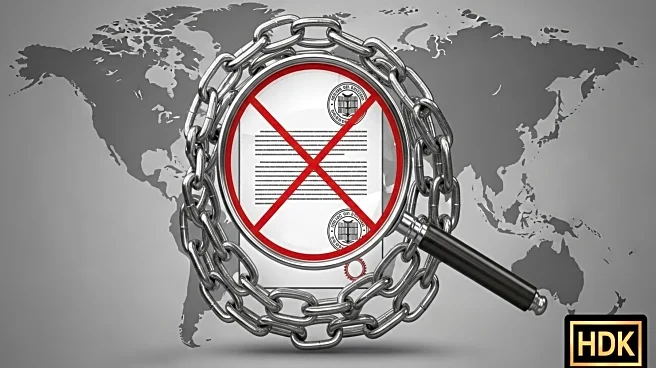What's Happening?
The U.S. Department of the Treasury's Office of Foreign Asset Control has launched its largest sanction action against the Houthi movement in Yemen. This action targets 32 individuals and entities, as well as four tankers, which are part of a global network involved in fundraising, smuggling, and weapons procurement operations. The U.S. claims that the Houthis generate significant revenue through oil imports and other commodities via ports under their control, which funds their global weapons supply chain. The sanctions aim to disrupt the Houthis' acquisition of advanced military-grade materials, including ballistic and cruise missiles, and drone components.
Why It's Important?
This sanction action underscores the U.S. government's commitment to countering threats posed by the Houthis, who are seen as a destabilizing force in the Middle East. By targeting the financial and logistical networks of the Houthis, the U.S. aims to weaken their military capabilities and reduce their ability to threaten U.S. interests and allies in the region. The sanctions also highlight the ongoing geopolitical tensions involving Iran, which is believed to support the Houthis, and the broader implications for international maritime security.
What's Next?
The U.S. is likely to continue applying pressure on the Houthis and their networks, potentially leading to further sanctions or military actions if deemed necessary. The effectiveness of these sanctions will depend on international cooperation, particularly from countries where the targeted entities operate. The Houthis may respond with increased military actions or attempts to circumvent the sanctions, which could escalate tensions in the region.









